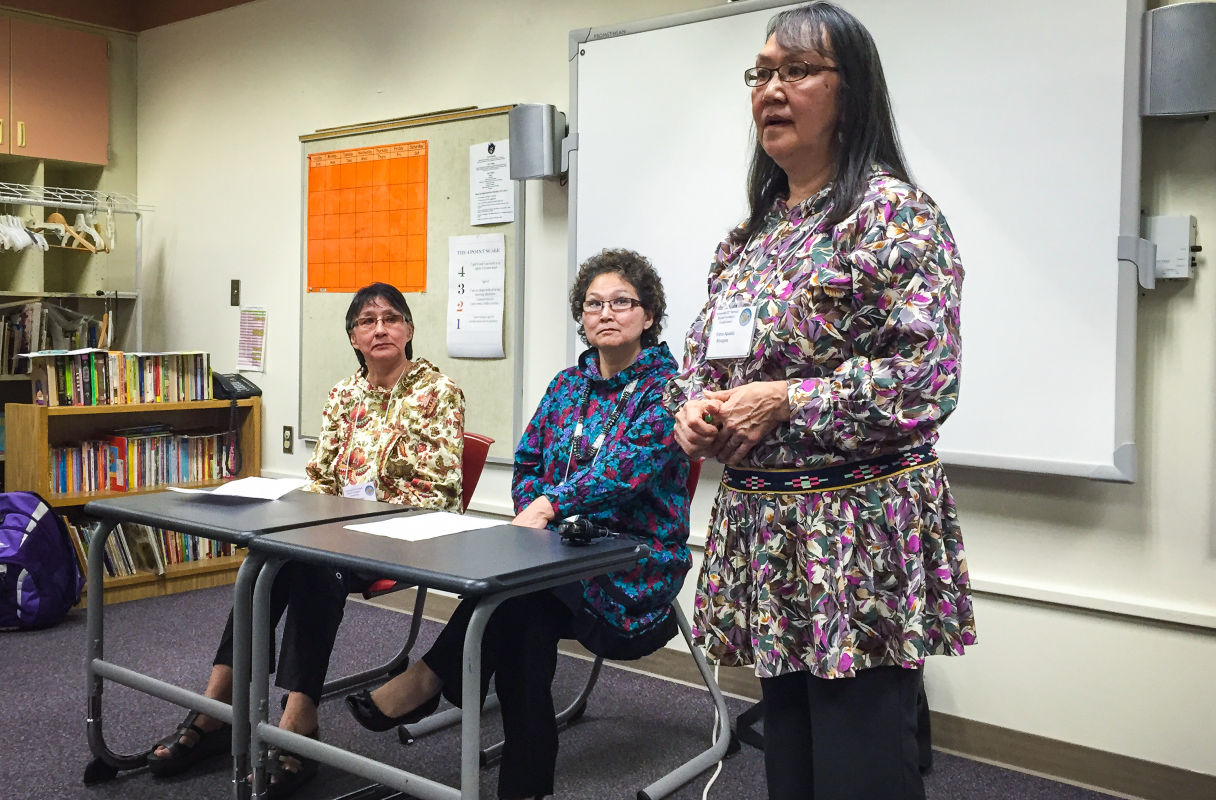
Nome could soon be home to an intensive treatment facility for those struggling with addiction and substance abuse. The Liitfik Wellness and Treatment Center has been five years in the making, according to Norton Sound Regional Hospital CEO Angie Gorn.
The proposed wellness center would provide intensive outpatient therapy, she says, as well as support and training to healthcare providers throughout the Bering Strait.
The plan has been championed as a much-needed alternative to far-away treatment options in cities like Kodiak and Anchorage. Members of the Liitfik cultural committee spoke in support of a local facility at Kawerak’s Rural Providers Conference in Nome on Monday.
Committee elders, including Emma Olanna, emphasized a need for regional support when it comes to substance abuse — and shared her own story, and struggle with addiction, as a message of hope.
“We want to leave everyone with hope. And these stories of recovery and success that we’ve heard brings hope to the hopeless. We need to stay strong and build hope with one another,” Olanna said.
By bringing the treatment options closer to home, she believes providers can better adapt therapy to fit the needs of those who live in Bering Strait communities. Even the word liitfik — which literally means “a place to get well, a place to come to your senses” in St. Lawrence Island Yu’pik, draws from an ancient place of healing.
“A long time ago, in the 19th century, people from the region would go by sailboat to St. Lawrence Island. To get well,” said Olanna.
Cultural committee member Edna Apatiki believes that a solution to the problem of substance abuse must also build upon the past. She says the way forward requires not only recognizing past hurts and traumas, but honoring past strengths.
“Our people are a resilient people. We wouldn’t be here if we weren’t resilient people. We’re survivors,” said Apatiki. She said the Liitfik center is a logical step forward — providing support for those who are already strong, but may need “a little hope.”
Plans for the facility are currently in the preliminary design stage, but could be finalized as early as next year, with construction slated for summer 2018.
